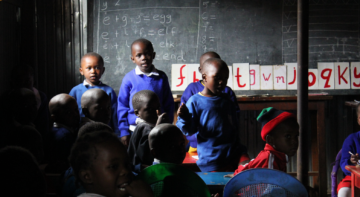Blogs

The Kenya Institute for Curriculum Development is in the process of reforming and replacing the 8-4-4 curriculum with a new 2-6-3-3-3 system.The need to improve the skills that youth get from schools in order to enhance their employability and ultimate economic productivity is at the centre of the rationale for these reforms.
Indeed, the rising youth underemployment and unemployment in Kenya has been attributed to two major factors: a weak education system based on an outdated curriculum that does not equip youth with the skills they need for employment and the failure of the economy to produce enough jobs for the rapidly growing youthful population.Similar reasons have been advanced in many countries that have recently embarked on such education reforms.
The country no doubt faces a challenge that limits its ability to meet its development skills needs. This is compounded by the fact that Kenya’s economic growth rate is slow and, worse still, it is not inclusive and has a low job-multiplier effect.
The sectors propelling growth include infrastructure development and service, which do not create many jobs. The agricultural sector, which supports the livelihoods of most households in Kenya, produces even fewer formal jobs since it is suffering from under-investment and limited modernisation and value-addition. Consequently, many young people are bonded to the informal sector, which is characterised by low-paying and unstable livelihoods.
There is no contention that Kenya needs urgent action to improve the access, quality, and relevance of education if the country is to achieve its socioeconomic transformation aspirations articulated in Vision 2030.
What is not clear is how the country should go about reforming its education system and to determine this, we need to ask ourselves pertinent questions. For instance, why is the 8-4-4 system failing to produce graduates with the skills that match the needs of the job sector? Is the number of years spent at each level of education in the 8-4-4 structure the problem? What are the experiences of the other countries implementing the 8-4-4 curriculum?
PRODUCE DESIRED RESULTS
What can we learn from the experiences of countries that are implementing the proposed 2-6-3-3-3 structure? Why are some of the countries implementing the proposed system, like Nigeria and Rwanda, seeking to reform it to incorporate vocational/technical and soft skills?
The problem may not be the number of years that children are spending at each level of education, but what they are learning and how the tuition is done. As other commentators have noted, the education reform agenda in Kenya will not produce the desired results if we do not focus on ensuring that children learn in conducive environments, have ample learning materials, and teachers adopt practical teaching skills. It is reforms along these lines that will ensure that children are equipped with skills in critical thinking, innovation, entrepreneurship, and overall work readiness.
The main merit of the proposed structure may be in generating commitment to universal early childhood education for at least two years.
However, a lot of the reform in improving quality of education and learning experience of children may be achieved through the current structure if we make sure that children stop learning under trees and that they have access to decent classrooms, have adequate learning materials, that there is a good mix of developing intellectual, technical, and behavioural skills (including integrity), and that they are inculcated by teachers who are well trained and committed to being practical facilitators of learning as opposed to the current exam oriented approach to teaching and learning.
Of interest to the public would be how the government plans to go about some of the challenges that come with implementing the new curriculum.
Some of the challenges that countries such as Nigeria and Rwanda have experienced under the structure we are proposing are similar to those Kenya has experienced in implementing the 8-4-4 structure, including inadequate equipment to support technical subjects leading to further inequality, inadequate numbers of teachers, and curriculum content that is not aligned to the requirements of the job market and the realities of the 21st century.
The debate should, therefore, focus not on the 8-4-4 structure of education but on the curriculum content and its delivery.
Dr Jackline Nyerere is a knowledge translation scientist at the African Institute for Development Policy. jackline.nyerere@afidep.org.
Related Posts





